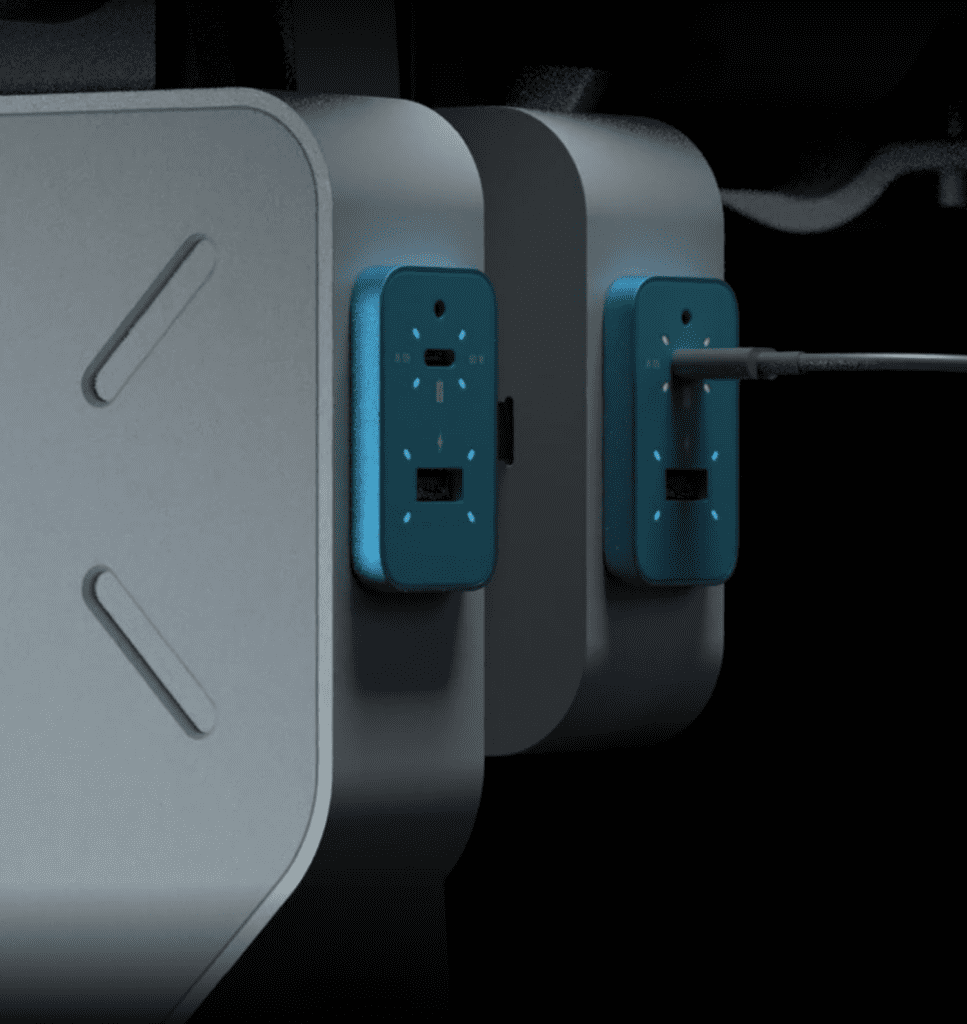
WeSky announced the launch of “recharge,” a lightweight in-seat power system that enables passengers onboard commercial aircraft to charge their portable electronic devices. (Photo: WeSky)
WeSky, an avionics company based in Lithuania, announced the launch of a new lightweight in-seat power system this week. The WeSky 60W USB power supply solution is called “recharge” and it can reduce fuel consumption—as well as lower carbon emissions—for commercial airlines. Passengers can use it to charge their portable electronic devices while onboard the aircraft.
According to the company, Recharge is 70% lighter on average than the equipment on the market today. The system also has a faster delivery lead-time despite supply chain issues. The Recharge solution reduces the annual carbon footprint of a standard fleet of single-aisle Boeing or Airbus aircraft by more than 800 metric tons (about 882 U.S. tons).
Vytis Petrusevicius, CEO and founder of WeSky, explained, “This new recharge solution will reduce an Airbus 321 carbon footprint by 16 tonnes/year, compared to other products offered by industry leaders. This means a commercial carrier with a fleet of 50 can save 250 tonnes of fuel consumption per year.”
Leslie C. Bethel, WeSky co-founder and board member, also commented on the launch of Recharge. She remarked that it will reduce the need for passengers to travel with extra battery packs—”a further benefit for aircraft efficiency and safety.”

The above photo demonstrates the compact size of the recharge Seat Power Box in comparison to a standard iPhone. (Photo: WeSky)
According to WeSky, “The airframe side wiring is installed only in the front section of the passenger cabin, thus reducing aircraft modification efforts for retrofit installations.”
Offering in-seat power has become more common, even for low-cost airlines. Birgir Jónsson, the CEO of Iceland’s new airline, PLAY, commented in an interview with Avionics earlier this year that they offer in-seat device charging for most of their aircraft. They do not plan to include in-flight WiFi, but PLAY does enable passengers to charge their personal devices onboard.
Southwest Airlines announced a $2 billion investment for its Boeing 737 fleet in May, which included upgrades to the in-flight connectivity (IFC) network from Anuvu. In addition to the IFC updates, beginning in 2023, Southwest plans to install the latest-generation USB A and USB C power ports onboard all 737 MAX aircraft.